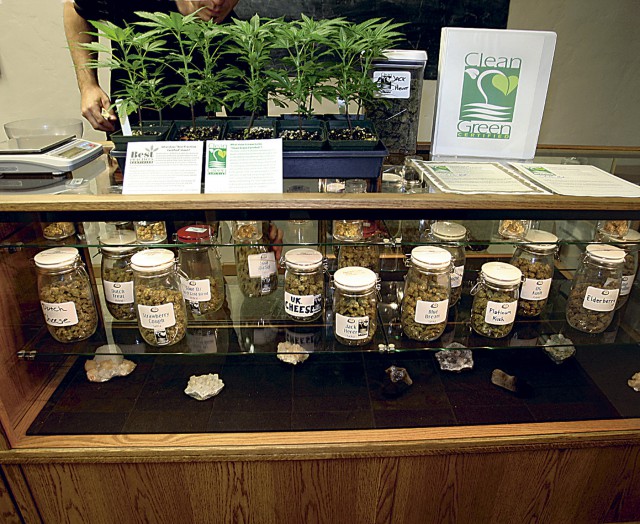
WATSONVILLE, Calif. — Want to buy organic carrots? No
problem. Organic strawberries? Widely available. Organic honey? Try
your local grocery store. But organic medicinal marijuana? Doesn’t exist
— at least not in any official sense.
Organic crops and products are certified by private
agencies through the U.S. Department of Agriculture — a program
developed after decades of advocacy by organic farmers and their allies.
Pot — medicinal or otherwise — need not apply.
“What the USDA doesn’t recognize as a legal crop, we
can’t certify because we’re certifying to their standards,” said Jane
Wade, development specialist at Santa Cruz, Calif.-based California
Certified Organic Farmers, the largest organic certification agency in
the country. “That leaves medical marijuana out in the cold.”
It also puzzles consumers interested in making sure
they’re not ingesting pesticides or other toxins along with their chosen
pain reliever.
Wade, who gets calls about organic marijuana certification “a few times a month,” said people are frustrated by her response.
“They ask, ‘Why can’t you fix this?’ ” she said.
Wade said California Certified Organic Farmers worked
for nearly three decades to get the USDA program in place. She
suggested the medical marijuana community can take action as well.
“The path is already trodden,” Wade said. “As long as
they don’t call it organic, there’s no reason they can’t adopt the
rules already in place.”
That’s just what Crescent City, Calif., lawyer and
USDA organic inspector Chris Van Hook thought when he was approached
about the question in 2003.
Van Hook has launched a certification service called
“Clean Green.” Modeled on the USDA program, Clean Green certifies
cannabis crops are produced to similar standards. As a lawyer
specializing in medical marijuana law, Van Hook also provides review of
legal compliance, and the shield of attorney-client privilege to ensure
an open discussion of issues.
Van Hook said it’s crucial for the survival of
medical marijuana to develop standards since no official agency is
taking on the task.
Though California law permits the cultivation and use
of marijuana for medicinal purposes, the California Department of Food
and Agriculture, like the USDA, doesn’t regulate it.
“We regard this as a law enforcement issue,” said California agriculture department spokesman Steve Lyle.
Van Hook said because the industry is unregulated, anything can get into the “stream of commerce.”
He pointed to examples from his own inspections of
crops growers said were organic. There was the woman who wanted to know
if it was OK to use human manure for fertilizer, and the guy who set off
a bug bomb in a small indoor grow room a few days before harvest. On
one farm, dust from piles of chicken and goat manure was blowing onto
sticky buds.
“We’re just one spinach fiasco from the hand of Thor coming down,” Van Hook said.
Colin Disheroon, the founder of Santa Cruz Mountain
Naturals, also is concerned with the lack of standards. The recently
opened dispensary in Aptos, Calif., is the only one in Santa Cruz County
with Clean Green certification.
Disheroon said he is unable to stock only Clean Green
certified cannabis due to insufficient supplies, but everything sold at
the dispensary is tested at SC Laboratories in Capitola, Calif.
SC Laboratories, which opened in April, also is on
the cutting edge of industry self-regulation. It’s one of a handful of
labs in the state that tests medical marijuana for mold, mildew,
pesticides and potency.
Disheroon favors putting regulations into place to
build patients’ confidence and provide standards that he hopes will lead
to national reform.
“This is an industry where we’re really at the front
edge of regulation right now,” Disheroon said. “If this industry is
going to emerge into the light of day across the nation, it has to have
the right things in place for that to happen.”
———
(c) 2011, Santa Cruz Sentinel (Santa Cruz, Calif.).
Visit the Santa Cruz Sentinel on the Web at http://www.santacruzsentinel.com.
Distributed by McClatchy-Tribune Information Services.














